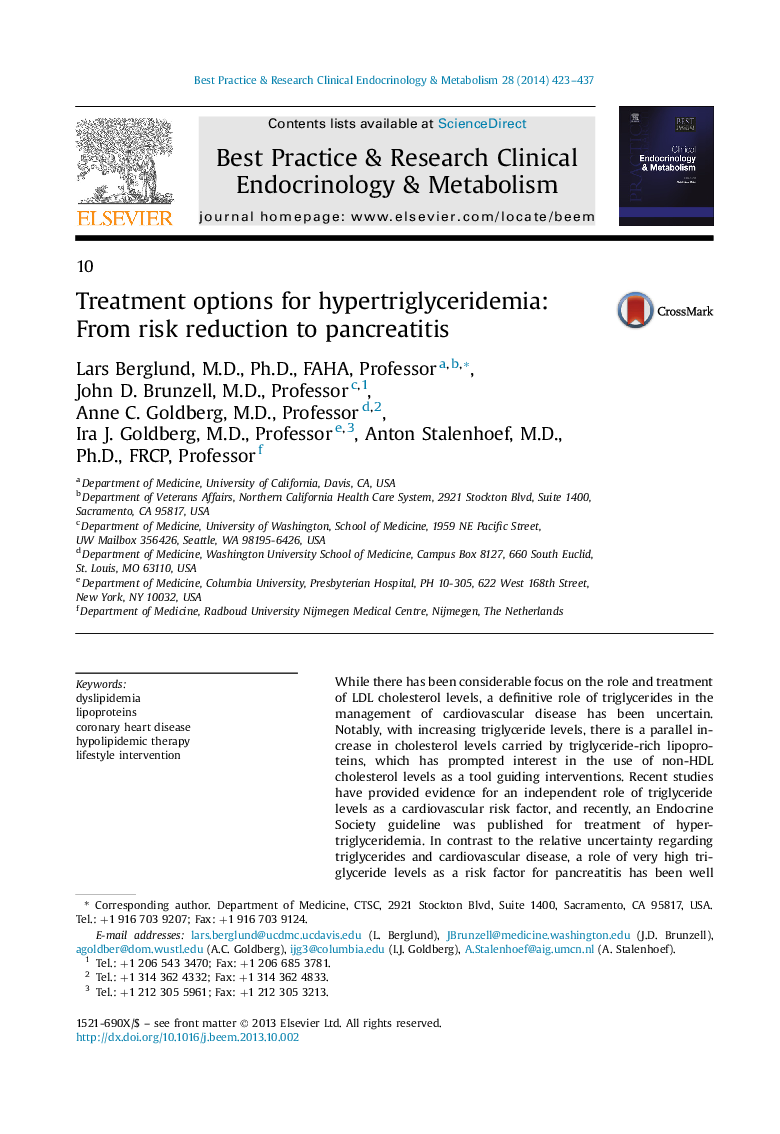| Article ID | Journal | Published Year | Pages | File Type |
|---|---|---|---|---|
| 2791630 | Best Practice & Research Clinical Endocrinology & Metabolism | 2014 | 15 Pages |
While there has been considerable focus on the role and treatment of LDL cholesterol levels, a definitive role of triglycerides in the management of cardiovascular disease has been uncertain. Notably, with increasing triglyceride levels, there is a parallel increase in cholesterol levels carried by triglyceride-rich lipoproteins, which has prompted interest in the use of non-HDL cholesterol levels as a tool guiding interventions. Recent studies have provided evidence for an independent role of triglyceride levels as a cardiovascular risk factor, and recently, an Endocrine Society guideline was published for treatment of hypertriglyceridemia. In contrast to the relative uncertainty regarding triglycerides and cardiovascular disease, a role of very high triglyceride levels as a risk factor for pancreatitis has been well known. The present paper summarizes the underlying evidence for a risk role for triglyceride levels in cardiovascular disease and pancreatitis, current treatment recommendations and areas of future research.
